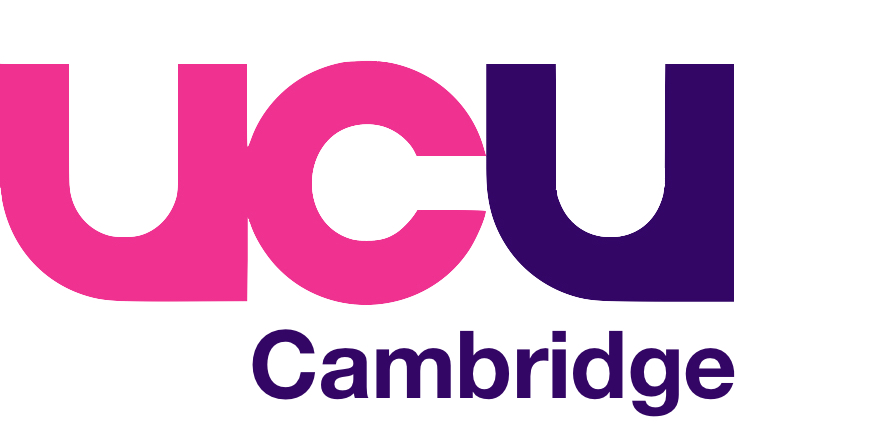Earlier today, our Anti-Casualisation Officers wrote to the Vice Chancellor, asking the University to do everything in its power to help out fixed-term staff reaching the end of their contracts in these unprecedented conditions. With no sign of how long this pandemic will last, it’s vital Cambridge does what it can to mitigate the uncertainty for casualised staff. We welcomed the VC’s commitment in his email today to look into this issue as a matter of urgency, and we at Cambridge UCU stand ready to work together to make sure nobody loses out.
Dear Professor Toope,
We are writing to urge you to address the critical issues that fixed-term researchers are facing during, and will be facing after, the COVID-19 pandemic.
In a moment where the academic job market is rapidly shrinking, the research staff on fixed-term contracts thus risks to suffer the worst effect of COVID19 in terms of job security. At the time of writing, universities across the UK have mostly suspended their main activities or are operating with minimal staff on site. This will have a severe impact on many fixed-term researchers’ ability to carry out their research for reasons below:
- They will be physically prevented from working. This applies to those who require access to departmental facilities such as laboratories to carry out their research. It may also apply to those whose fieldwork is prevented or disrupted, whereby they will not be able to collect essential data, or those who lose access to archive material and books.
- The severity of the crisis has significantly affected their physical and mental health, thus preventing them from concentrating on their intellectually-demanding research. This is especially true for the people originally from countries which have been severely affected by the epidemic, those whose family members or loved ones are at risk, and those who already suffer from a number of mental and physical disabilities.
- Finally, the current crisis requires many fixed term researchers to spend time on practical concerns, such as securing their housing, finances for the duration of the outbreak, and making sure their loved ones are safe. Many fixed-term researchers have child care responsibilities and have struggled to find temporary arrangements to manage their research time with their caring obligations. This takes time and energy which would otherwise have been allocated to their research.
This puts many fixed-term researchers in a difficult position. Many will have to redirect their efforts away from their research to manage the crisis. Through this precarious time they will need to use their funding to support themselves. Others might attempt to work when doing so would not be advisable, posing a risk to the mental and physical health of themselves and others. This will also affect the quality of the research which is carried out at this university.
Last week, the UCU General Secretary Jo Grady wrote to the Chief executive of UK Research and Innovation (UKRI) to prompt the organisation to protect fixed-term and early career research staff. We know, however, that many fixed-term researchers at Cambridge are sponsored by non-UKRI research bodies, including those employed and funded by Colleges, which might not grant funding extensions in relation to COVID19. From the message that you have sent to staff today, we understand that the University has been looking into the terms under which the University may be able to extend the contracts of fixed-term staff, and that a proposal will be soon brought to Council for discussion. We welcome this development, and are writing to draw your attention on the following points of utmost concern that we urge you to consider as a matter of priority when implementing your response plans. We are available for discussion on all of these issues.
- Guarantee an automatic funding extension for all fixed-term researchers, not merely those who are coming to the end of their contracts in this academic year, especially for those that 1) are not externally funded; 2) are sponsored by a funding body that is not granting funding extensions in light of the COVID19 emergency. The length of the funding extension should be for as long as the University operates during the red phase;
- Actively liaise with UKRI, the Colleges, and other funding agencies to urge them to grant funding extensions, ideally coordinating with them to ensure that no fixed-term researcher is unfairly disadvantaged by this global crisis.
- Automatically extend the sponsorship and leave to remain for all Tier 2 staff on research contracts by at least six months, giving priority to those nearing the end of their respective contracts,
- Cover all the visa-related costs, including the International Health Surcharge, that the Tier 2 staff and their dependants will incur for this extension,
- Ensure that the indefinite period of absence that Tier 2 research staff may incur in the course of this pandemic does not affect their applications to Indefinite Leave to Remain through the 5-year track.
We realise that you, like everyone else, are under severe strain due to the current crisis, and wish to extend our support in helping to resolve funding-related issues. We believe that prompt communication to the research staff about what your response plans are with regards to funding is of utmost importance, to give relief for many living under duress and uncertainty.
